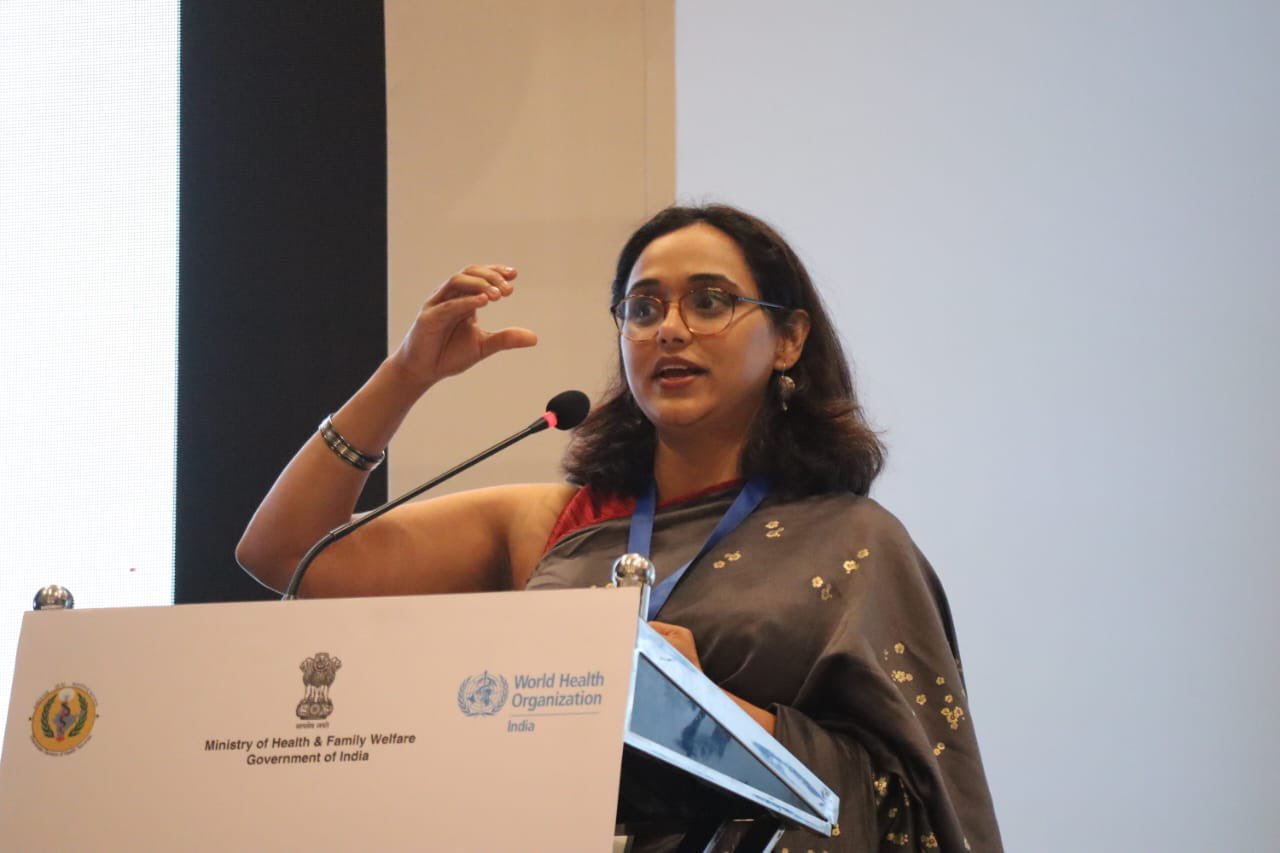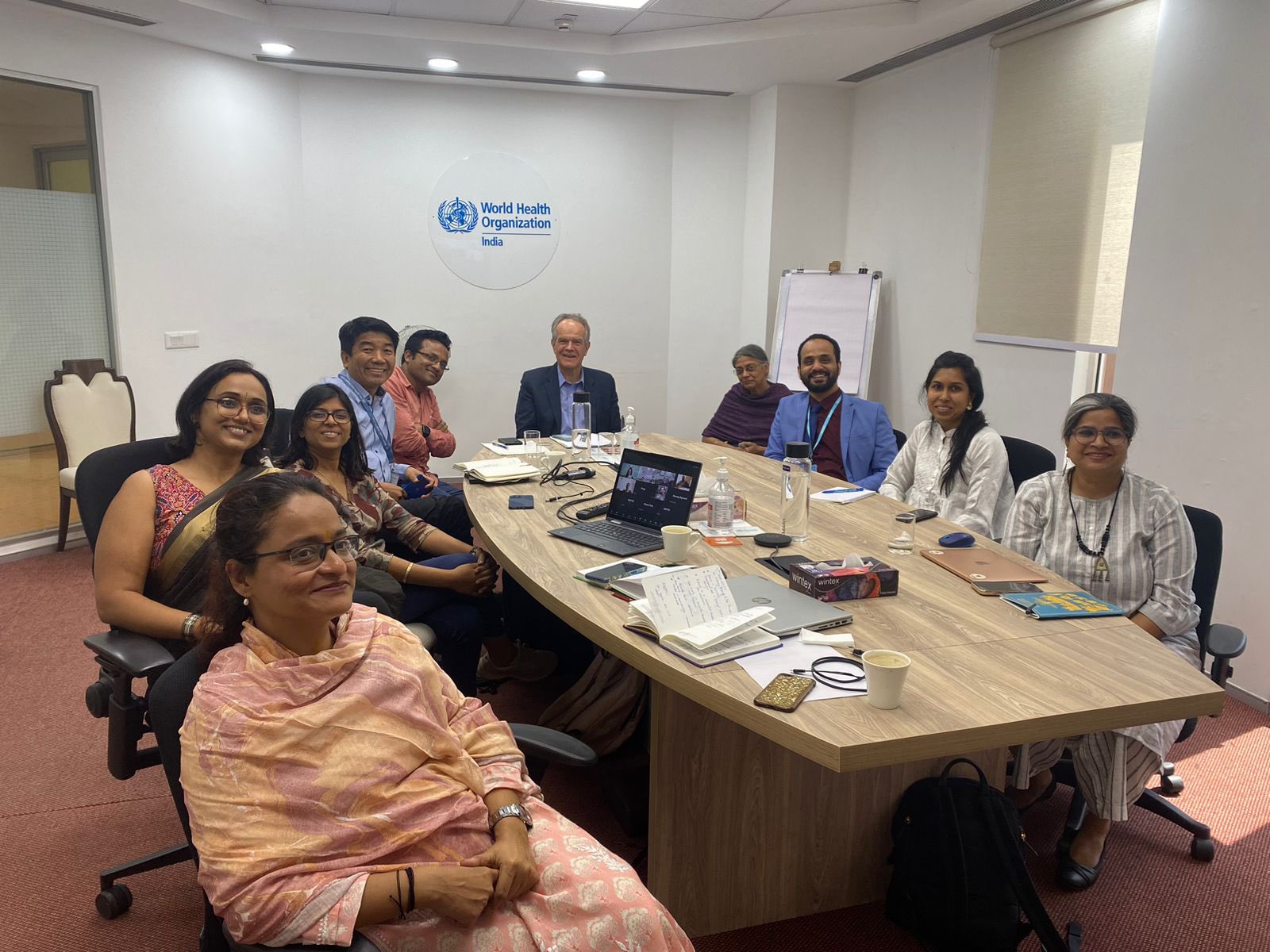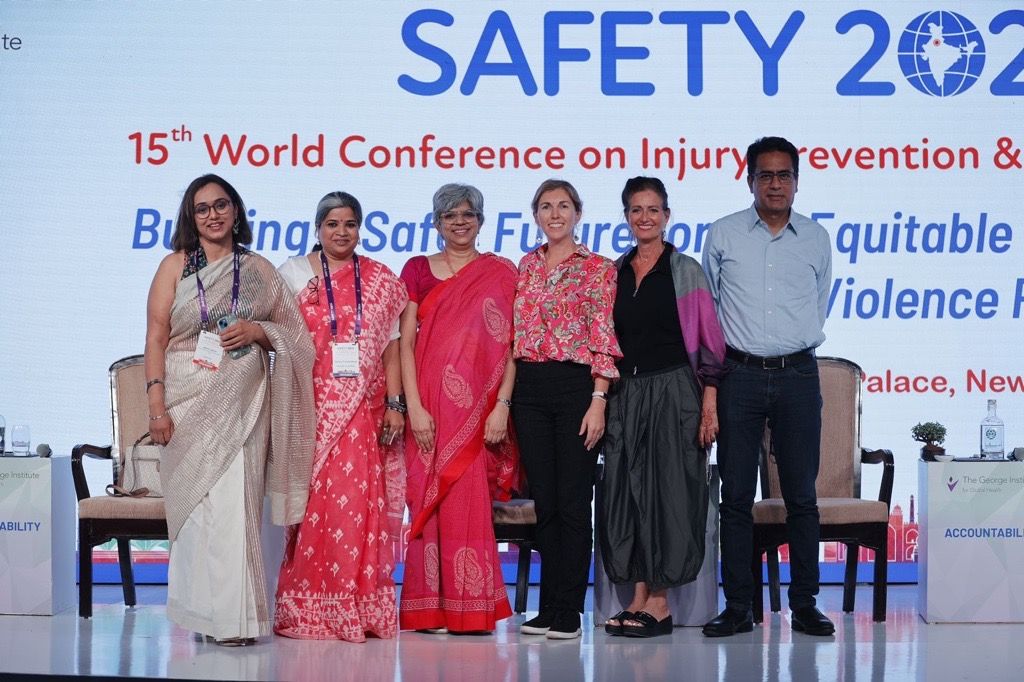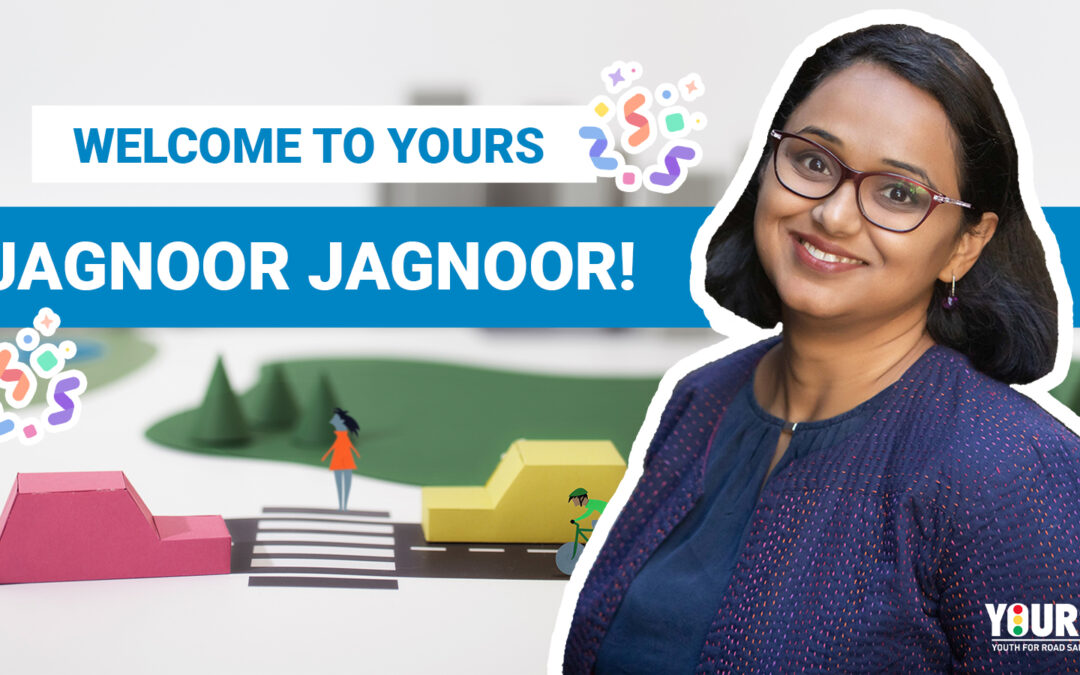Recently, YOURS – Youth for Road Safety welcomed youth leaders, Simon Patrick Obi and Inés Yabar, into its governing body, the Supervisory Board.
Additionally, YOURS welcomes another person to the Board—Professor Jagnoor Jagnoor—who represents the role of academe and advocacy in road safety, sustainable mobility, and meaningful youth participation.
Professor Jagnoor currently serves as an Associate Professor and Programme Lead for Injury at the George Institute for Global Health in Australia. She also heads the Injury Division in India and co-directs the World Health Organization—WHO Collaborating Center for Injury Prevention and Trauma Care.
She holds an Emerging Leadership Level under the NHMRC or the National Health and Medical Research Council, which means that she has been given a grant to pursue research on health and medicine with a focus on injury epidemiology.
Professor Jagnoor’s research focuses on various topics, including the impact of injuries, equity and vulnerability in injury burden distribution, interventions to reduce the load of injuries across Australia, Africa, and Asia, and injury prevention and post-injury recovery outcomes.
To help you get to know Professor Jagnoor better, we asked her a few questions about her life and her experiences. Read on!

Can you tell us a little bit about yourself? About how you got into academe and eventually into the road safety field?
My journey into academia has been one of continuous learning, unlearning, and relearning. I’ve always been fascinated by how social systems, policies, and infrastructure shape individual behaviours, particularly when it comes to public health and safety. Over time, I recognised that road safety is not just a technical issue but a deeply intersectional one, where marginalised groups—whether due to gender, disability, or socio-economic status—are often the most vulnerable. Safe, accessible and efficient transportation is an enabler for better social determinants of health with access to education, employment and health services. This realization fuelled my commitment to working in this field, with a focus on addressing systemic barriers rather than placing the burden of change solely on individuals.
What are you looking forward to doing and achieving as a new member of the YOURS Supervisory Board?
As a new member, I’m eager to contribute to the organisation’s mission, ensuring that our strategies remain inclusive and responsive to diverse needs. My goal is to foster a more holistic approach to road safety, one that extends beyond traditional measures and considers how gender, disability, and other intersecting factors shape road use. I also aim to advocate for policies that address these structural inequities, striving for solutions that are both effective and equitable. I hope to help bridge the gap between evidence and community voices, creating platforms that bring marginalized perspectives into the mainstream.
Working with youth, especially those from marginalised communities, is also a unique opportunity to amplify voices that are often unheard. I’m excited to engage with young leaders who bring their lived experiences into the conversation around road safety. Their perspectives on issues like accessibility, gender-based violence, and the socio-economic barriers to safe mobility are crucial. I believe my role is to ensure that these insights help shape the global road safety agenda and are reflected in both policy and practice.

Can you talk a bit about the role academia and advocacy have in furthering road safety efforts?
Academia provides the framework to understand how complex social determinants shape behaviours, particularly in the realm of road safety. The role of research is not only to inform but also to challenge traditional narratives that place the onus on individuals to be “responsible” drivers or pedestrians. Instead, we need to look at how structural factors—such as access to education, socio-economic status, and physical ability—affect road use and safety. Clearly, academia is often perceived and respected as an “expert” voice. Advocacy, on the other hand, translates this knowledge into action, pushing for policies that address these root causes.
From a strategic point of view, how will you integrate academia into the work YOURS is doing for young people and road safety?
Strategically, academia can serve as a foundation for inclusive, data-driven advocacy. By integrating academic research with the lived experiences of young people, we can create a roadmap for effective and equitable interventions. This means not only studying road safety from a technical standpoint but also examining how different populations—such as women, people with disabilities, and low-income communities—experience road environments differently. I see opportunities for YOURS to work closely with academic institutions to produce intersectional research that informs our campaigns and advocacy efforts.

Can you give us a little glimpse into what your visions are for the organisation with this new Supervisory Board that now includes young people within its structure?
With young people now playing a more integral role on the supervisory board, I envision YOURS becoming an even more dynamic and inclusive force for change. My hope is to build an environment where youth from all backgrounds—feel empowered to lead and innovate. I see this as a chance to co-create strategies that reflect the realities of different groups, whether it’s addressing the unique challenges faced by women on the roads, or ensuring that people with disabilities have access to safe and reliable transportation options.
Professor Jagnoor joins Professor Adnan A. Hyder, Professor Shanthi Ameratunga, and Ruud de Groot on the Board.

